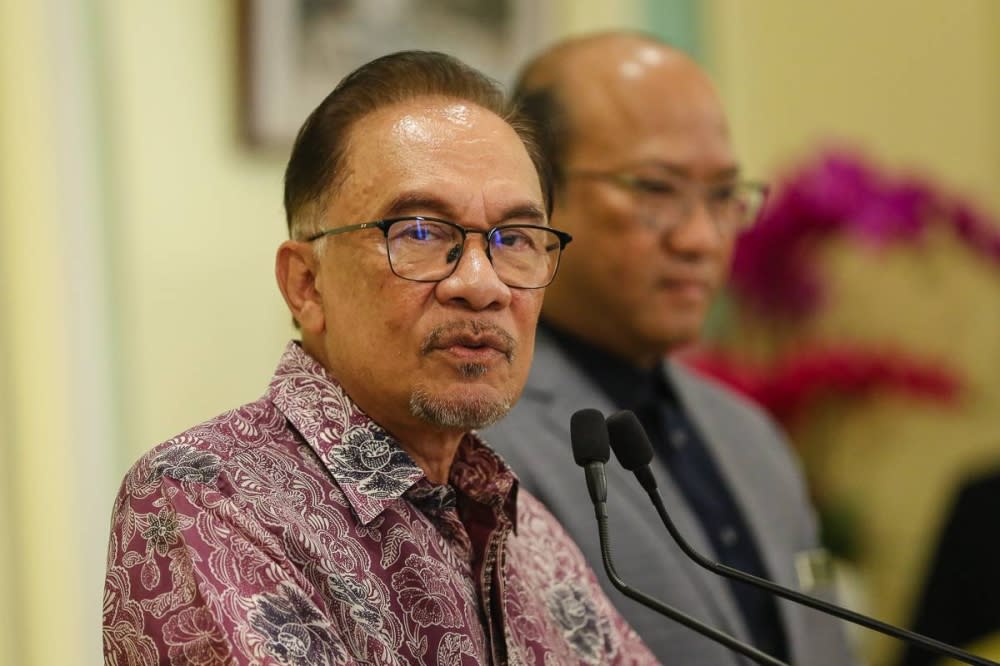PAS accuses DAP of being a ‘parasite’; here's what the data shows about its position in govt

KUALA LUMPUR, Nov 30 — Despite its multi-ethnic composition, DAP went into the 15th general election under a barrage of allegations from Perikatan Nasional (PN) that it is anti-Islam and pro-communism.
The heat was so intense that Pakatan Harapan (PH) chairman Datuk Seri Anwar Ibrahim was forced to assure voters that DAP would not be in control of the government should the coalition win the election, and that a new prime minister will continue to be Malay.
Now that Anwar has become prime minister, those allegations against PH and the DAP especially have redoubled.
Citing the number of DAP MPs compared to others in the government, PAS went on social media with a poster accusing DAP of being a “parasite” riding on a Malay unity government that will in the end destroy the “weak” host.

Propaganda piece published by PAS on its social media accounts accusing DAP of being 'parasites' in the 'unity government'.
How huge is DAP's presence in the government?
With 40 out of 221 (polling for Padang Serai has been postponed to December 7 owing to the death of the PH candidate M. Karupaiya), DAP is undisputedly the party with the most seats in the government. Second to it is PKR with 31 seats.
During GE15, DAP came second when it comes to most seats won. Top of the list was PAS with 49 seats — 27 of those won when contesting not using its own logo, but under PN.
Assuming that the "unity government" will comprise PH, Malaysian United Democratic Alliance (Muda), Barisan Nasional (BN), Gabungan Parti Sarawak (GPS), Gabungan Rakyat Sabah (GRS), and Warisan ― DAP only holds just over a quarter of the total seats at 27.8 per cent.
This is less than its share of seats after the 2018 general election, and even then it only held just over one-third of the seats at 34.7 per cent.
Back then, six DAP MPs were appointed to the Cabinet ― the same as Bersatu which also held the prime minister post. PKR had seven.
It also had seven deputy ministers, the same as PKR.
DAP's performance of winning 40 seats is fairly consistent with its performance since it became part of the Pakatan Rakyat coalition in 2008.
Its best performance came in 2018 when it won 42 seats, just two more than this year.
Bumiputera MPs still form the bulk of the government
One of the main fears amplified disinformation ahead of the GE15 was that non-Malays, specifically the ethnic Chinese, would dominate the government should PH win the election.
This was highlighted by #KamiNampak, an inititative to monitor the use of racial and religious rhetoric during the campaigning, and also the news coverage in Awesome TV calling for Malays to vote so the government would not be influenced by non-Bumiputera voters.
This sentiment carried over even after the formation of a unity government, with the PAS social media post suggesting that the ethnic Chinese in DAP will ruin the administration.
The data provided by data scientist and economist Thevesh Theva seems to dispel the notion that the government is “dominated” by ethnic Chinese MPs.
Dah ramai orang komen dari sudut politik. Maka saya hanya nak kongsikan data.'Unity Gov' (PH + BN + GPS) ada 135 MP.• Tak kira lelaki atau wanita, jumlah Bumiputera adalah 2x ganda drpd Cina.• MP DAP < 30%.Perkataan 'dominasi' itu tidak berpaksikan data. https://t.co/IOrQHvp9xU pic.twitter.com/r8BnPyvRTw
— Thevesh (@Thevesh) November 29, 2022
Based on his analysis on 135 MPs that make up a “unity government” of PH, BN and GPS, Thevesh pointed out that there are twice as more Bumiputera MPs than ethnic Chinese ones.
Thevesh's data showed that the biggest demographic of MPs in the "unity government" are Bumiputera, male, and aged between 60 and 69.
Out of the 135 MPs, Bumiputera MPs make up almost two-thirds of the total with 84 of them (62.2 per cent).
In comparison, there are only 41 ethnic Chinese MPs (30.4 per cent).
This is roughly comparable to the most recent demographic data from the Department of Statistics, which showed that Bumiputera make up 69.9 per cent of the total population, compared to the ethnic Chinese at 22.8 per cent, and ethnic Indians at 6.7 per cent.
In the 15th general elections, PH won 82 seats to PN's 73. It later formed a coalition government with BN following support from GPS and GRS.
* Malay Mail is a partner of JomCheck, a fact-checking network of Malaysian media, academia, and the civil society.
** Malay Mail readers can submit requests for fact-checking by sending a claim to JomCheck's tip line at +6017-477 6659 (WhatsApp text only, no calls).



